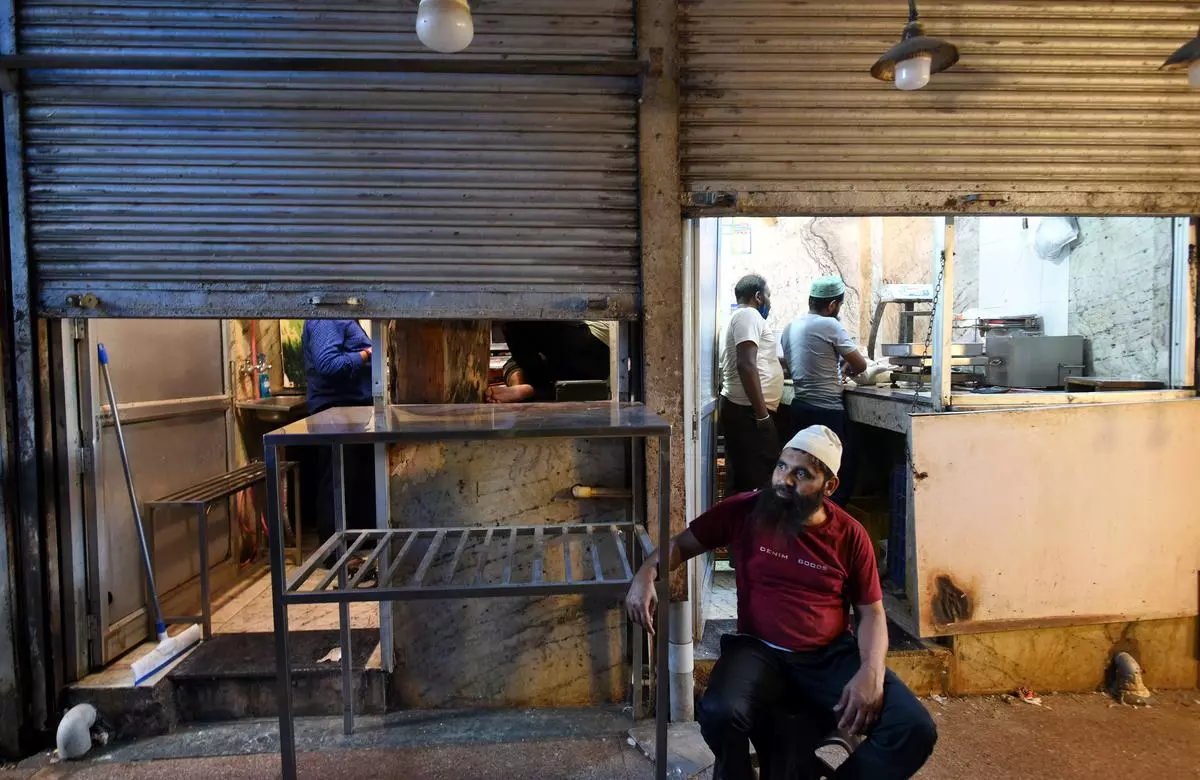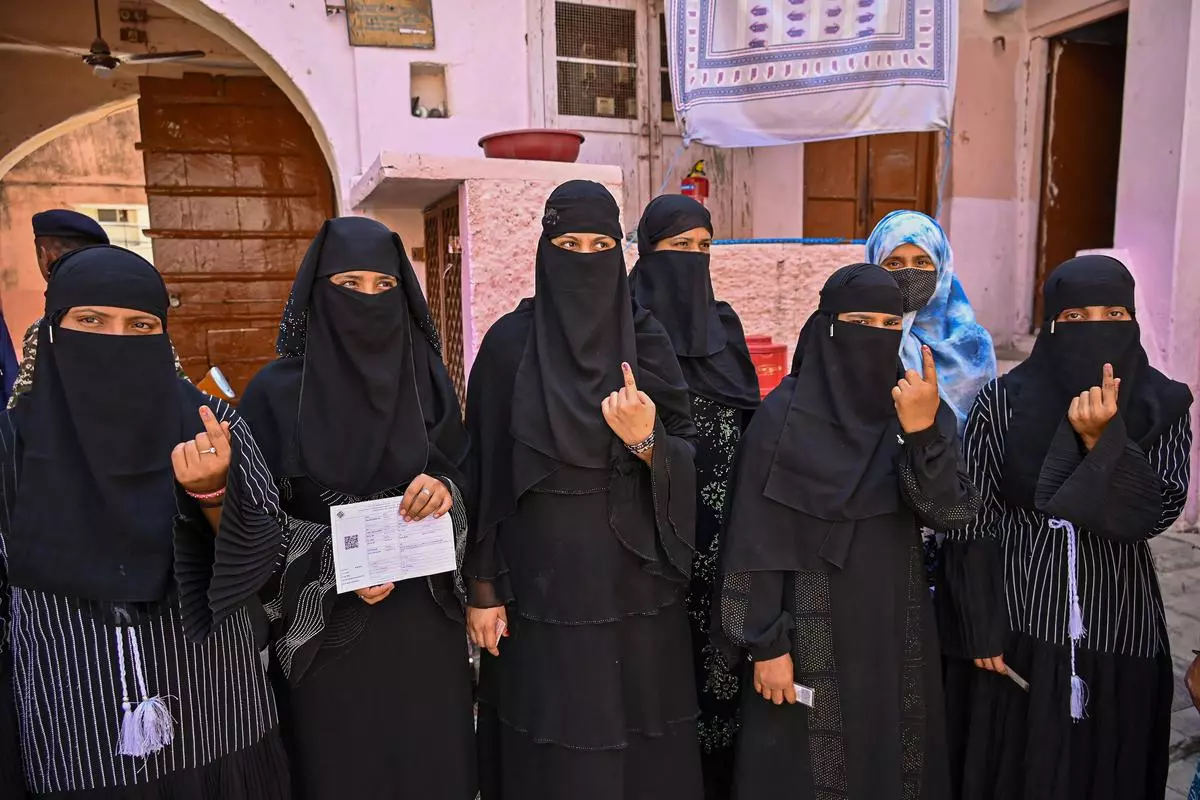Do India’s Muslims need to change their approach? This was one of the questions asked after I had given a talk about Nehru’s approach in The Discovery of India. I did not know who asked the question. Was it a Hindu or a Muslim? Whatever be the identity of the questioner I needed to hear it in the context it was asked. But before that, I also needed to understand what the questioner wanted to ask. When we say “the approach of Muslims”, do we mean the approach of Muslims in religious matters, social matters, public matters, or political matters?
How do we find out what the approach of Muslims is? Before we ask this question, we need to also ask if, when we say “Muslims”, does the term cover all Muslims? Or, like Nehru, we must say that we are talking about approximately 20,47,60,392 Muslims, all “separate individual men and women (and those who do not fall in these categories), each differing from the other, each living in a private universe of thought and feeling”. The approach of each one of them could be different from the others in many matters.
Yes, there is something that binds them together that creates a Muslimness, common to their multitude. Yes, there is the thread of Islam they believe in, which binds them, but apart from that, their social background, their class status, their education, are different, which affects their approach to life. So, when we club these different Muslims together by asking if they need to change their approach, are we even asking the right question?
Thinking about it, I realised how a common Muslimness has been created in India that has reduced these 20,47,60,392 Muslims to their immediate identity of Muslimness. Be they judge, millionaire, clerk, administrator, teacher, or student, they cannot escape their Muslimness. At one level, they have been robbed of their individuality, their uniqueness.
Mohsin’s murder
Muslimness has been manufactured by the violence of Hindutva politics. The talk I mentioned took place in Pune, the city where, in 2014, the “first wicket” was felled—as the murder of Mohsin Shaikh was described by his killers—after Narendra Modi took over as Prime Minister. He was killed because of his “looks”: his appearance had provoked his attackers so much that they had killed him. That was the beginning of the lynching of Muslims in India under various pretexts. Mohsin was a software engineer. He had a professional identity. He must have had a personal identity too.
But that was not the reason for his murder. As the court said, he was killed only because he belonged to the Muslim community. His murder made his Muslimness visible. What could he have done to prevent his murder?
Also Read | Rise of Hindutva politics and the progressive Muslim
Other physical attacks on Muslims soon became commonplace. The expression of Muslimness became an issue. Whether it was in looks, attire, eating habits, or religious practices, anything has become a problem for a section of Hindus, a section that is now growing larger and larger. Whether one wears a hijab or abaya, offers prayers in an open space, or takes out religious processions, some Hindus can take offence and attack you.
If you sell meat or have a shop with a religious agnostic name or a shop with a “Hindu” name, you can be attacked. If you do business in a “Hindu” area, you can be attacked, as was Tasleem, who was selling bangles in the gullies of Indore. If you do not come across identifiably as a Muslim, that can become an issue. This is what the Uttar Pradesh police and government have told Muslim shopkeepers: they have to identify themselves clearly and loudly. They are disallowed not only to use “Hindu” names but even their own nicknames if it can confuse people, for example, Sonia or Pintu or Sunny. They have to display their Muslimness so that others can decide what to do with them.

The closed meat shops of INA Market in New Delhi on April 6, 2022.
| Photo Credit:
R.V. MOORTHY
But if you are demonstratively Muslim, you are still under threat. You may return home safe, but it will depend on the way the Hindus you encounter react to you, the ones on trains, in colleges, clubs, parks, and offices. It is not your actions but their actions that will make you aware of your Muslimness. One has heard so many people in these past 10 years say that they have been made to “feel like Muslims”. Earlier, they were not conscious of their Muslimness in the way they are now. It is not their choice, not their doing. It is some Hindus, not only from the RSS or the BJP, but outside their fold too, who have made Muslims feel in the past 10 years that they are first and last Muslims for the rest of India.
And then you have BJP leaders such as Prime Minister Narendra Modi and his followers, who always invoke Muslims as they talk about having to save Hindus from their clutches. From their rising populations, their desire to lure Hindu women, their eye on reservations, and so on.
Bilkis did not give up
This is how a large Muslimness is created. Anyone from the Muslim community across class, caste, and gender can become a target of anti-Muslim hatred and violence at any time. I understood that my correspondent was speaking from within this identity. And he was asking if Muslims need to change their approach. Change their approach for what purpose? To stop Hindus from attacking them, blocking their renting or buying of homes, their prayers, their businesses? What do Muslims need to change in their “approach” so that they are allowed to live peacefully and with dignity?
What should Muslims do to prevent the laws that target them specifically: the Citizenship Amendment Act, the “love jehad” laws, the anti-conversion laws, the amendment to the Waqf law that is currently under discussion?
What should Muslims change in themselves to prevent the calls for their slaughter in so-called Dharam Sansads led by Hindu religious figures? What are Muslims expected to change in themselves so that the Sangh Parivar and its acolytes, from the Prime Minister downwards, stop spreading hatred against them?
How should Muslims change their behaviour so that Hindu mobs stop attacking their mosques? What steps do Muslims need to take so that political parties start acknowledging these as hate crimes and speak out about them? What do they need to do to persuade political parties to give them adequate representation in government bodies and posts? Perhaps all this must have been in the mind of the gentleman who asked if Muslims should change their approach.
What has been the general approach of Muslims in these matters? What have they done when faced with violence? What did Bilkis Bano or Zakia Jafri do? What are the families of Junaid and Pehlu Khan doing?
Their approach has been the constitutional, legal approach. They keep knocking on the doors of different courts. Even when they receive injustice, they do not give up. Like Zakia Jafri. Or Bilkis Bano. When faced with calls for violence they, like Mohammed Zubair, flag them in public and appeal to the police and authorities to act. When their places of worship are targeted, they go to court. India’s Muslims have still not given up on India’s judiciary.
‘A collective conspiracy’
Muslims are investing more and more in education. They are entering all professional fields, trying to qualify for the civil and police administration. Is this not what we expect all communities to do? From OBC to Dalit to tribal communities, we encourage them to be seen in these positions. Muslims are trying to do that. But even this is seen with suspicion. With resentment even. From TV anchors to the RSS chief, we find them alleging that it is a collective conspiracy to infiltrate the state structure and capture it.

Muslim voters show their ink-marked fingers after casting their votes for the second phase of Lok Sabha elections, in Ajmer, on April 26, 2024.
| Photo Credit:
PTI
Politically, the approach of Muslims has been to cast their lot with the Hindu masses. They vote for liberal and “secular” parties: they have voted for the Congress, the socialists, the Communists, even for a party like the Shiv Sena. If we look at the pattern from 1952 to 2024, Muslims have voted for the parties that Hindus vote for in large numbers. That changed slightly in 2014, but why should Muslims be expected to vote for a party that vilifies them and does not believe they are equal citizens of the country? Why does this become “vote jehad”? What one can say with confidence is that Muslims have not voted for a “Muslim” party in overwhelming numbers nor for an Islamist ideology.
A lot is said about the absence of leadership within Muslim communities. But Muslims, at least in the political field, have never yearned for a Muslim leader. They have chosen Jawaharlal Nehru, Indira Gandhi, Jayaprakash Narayan, Ram Manohar Lohia, V.P. Singh, Mulayam Singh Yadav, Lalu Prasad, Jyoti Basu, Mamata Banerjee, Arvind Kejriwal, and even Uddhav Thackeray as their leaders. They have opted for Akhilesh Yadav or Rahul Gandhi. All non-Muslims. Politically, Muslims have taken an open, liberal stand.
Also Read | Divisive politics is denting India’s global image, hurting diplomatic interests
Socially, just like Hindus and Christians, Muslims too are not homogenous. They do not have one single approach to social and religious matters. They have conservative elements and liberal elements. Have they become more religious in the recent past and is this a problem? But if we look at other religious communities, we find religiosity increasing there too. So, if this is a problem, it is a universal problem.
What then is the answer to the question of whether Muslims need to change their approach? Any society that wants to move forward can do so only by regularly examining its approach in different areas of life. The question, therefore, applies to all communities equally, not just to Muslims. All communities need to rethink their approach with the times and change when needed.
But to stop the marginalisation, persecution, violence, and injustice perpetrated against them, it is not for Muslims to change their approach. It is for the state, the executive authorities, and the courts to change their approach. It is for the RSS and the BJP to change their approach. It is for the Hindu mobs to change their approach.
The concern behind the question, the anxiety behind the question, can be understood. But the onus for it is not on Muslims, it is on the larger Hindu society.
Apoorvanand teaches Hindi at Delhi University and writes literary and cultural criticism




